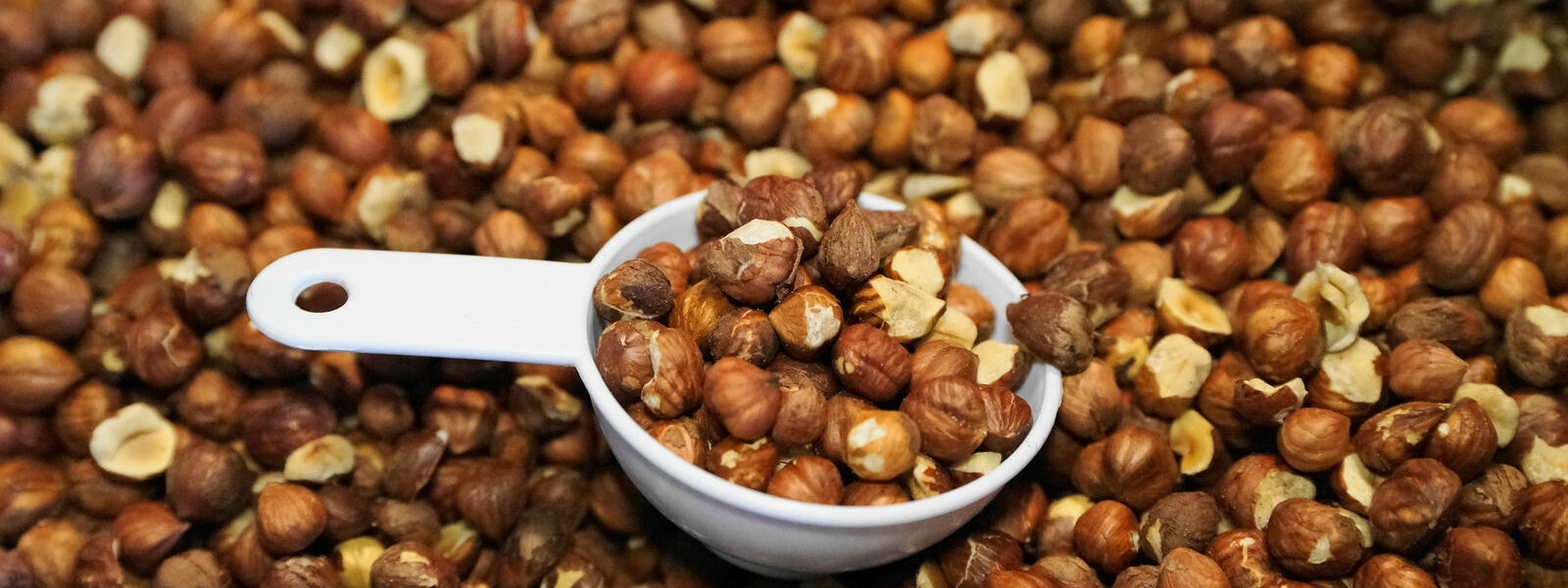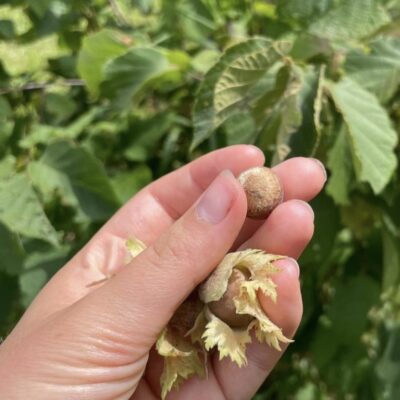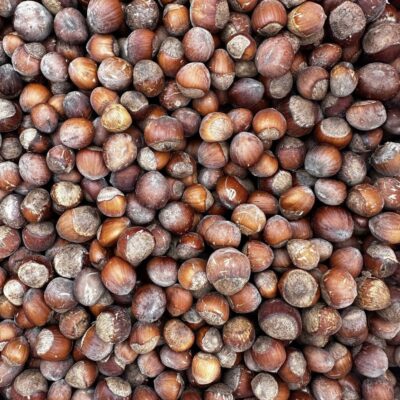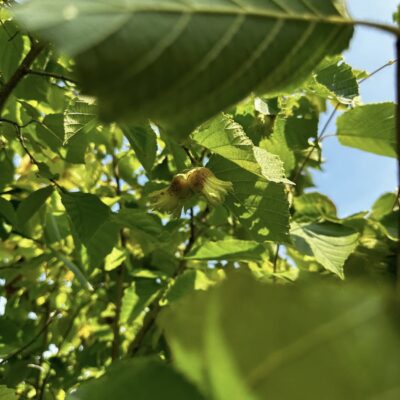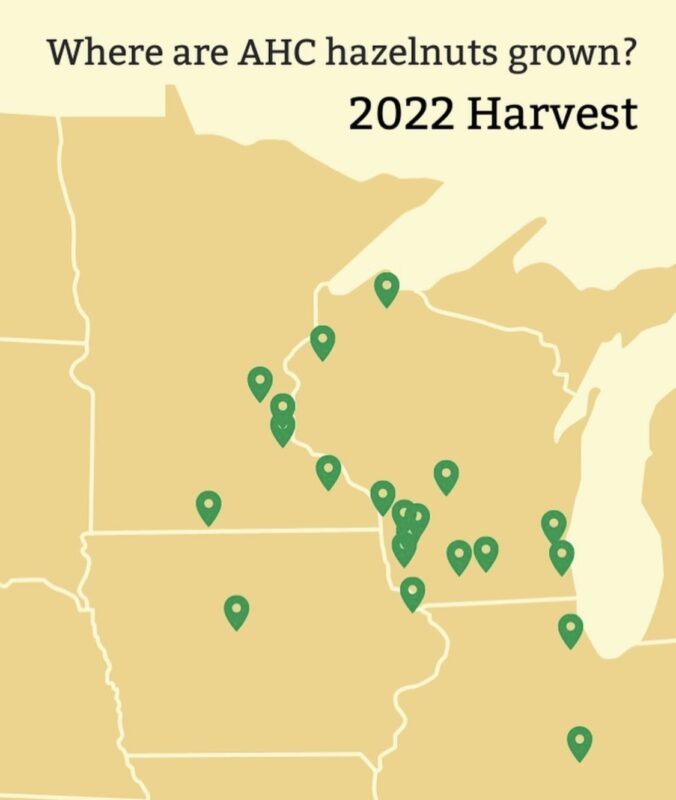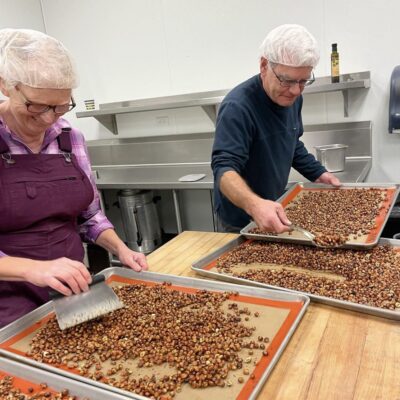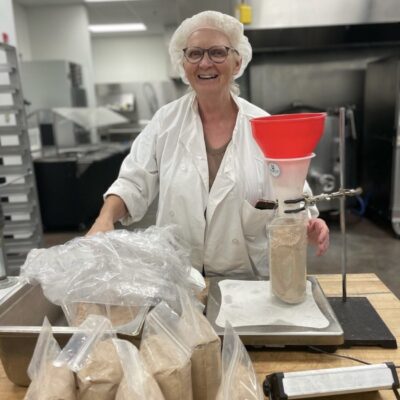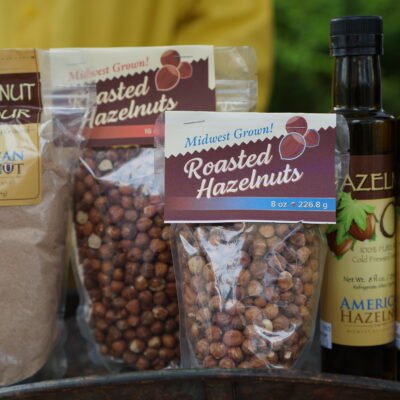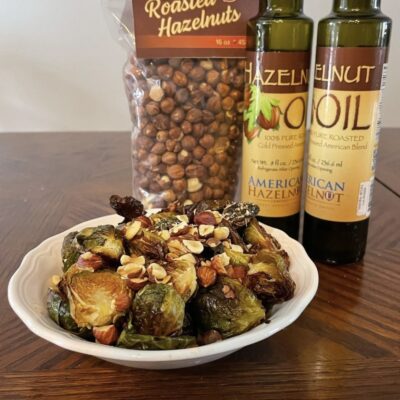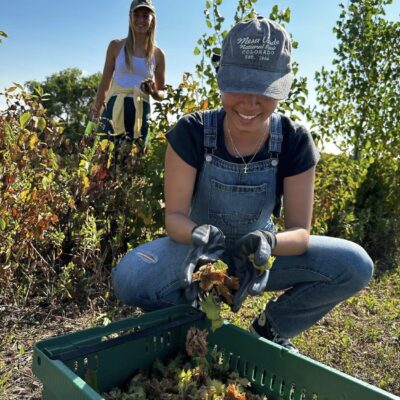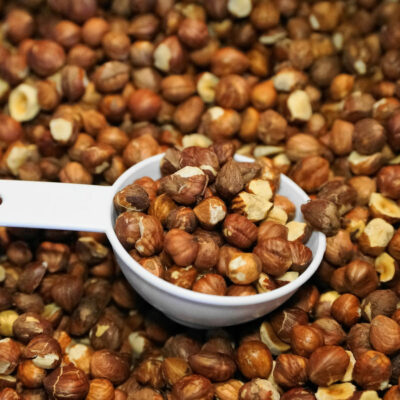Hazel Heart Farms (formerly American Hazelnut Company) is a co-operative of growers bringing a new, climate-friendly crop to the Midwest. Stock up on hazelnuts along with hazelnut flour and oil at the next two winter markets (December 2nd & 16th) before they’re gone until next season!
Words by Alia Jeraj, @aliaxgrace
“We are not young,” write the growers of Hazel Heart Farms. “We have planted hazelnuts that will outlive us, growing old with our children and grandchildren.”
Mike Lilja (below, on the right) is one of the founding growers at Hazel Heart Farms (at the time called American Hazelnut Company, or AHC). He got into farming in his forties—a permaculture class in 2008 led to an interest in perennial agriculture: caring for and harvesting crops that come back year after year, rather than replanting fields each season. “I wanted to do something that was better for the environment and something that wasn’t as hard on me [physically],” he says. And so, he turned to hazelnuts.
While most hazelnuts grown and sold in the U.S. are a European variety, there is a hazelnut species native to this continent—the American hazelnut. These nuts are more resilient, able to withstand cold midwestern winters and droughts that are becoming more characteristic of our summers. AHC farmers grow a plant that is a cross between the native American hazelnut and the European version, creating a larger, more consistent nut. Hazelnut shrubs grow deep roots, accessing water deep in the ground and anchoring the plant in the soil to prevent erosion. Because American hazelnuts are harvested directly off the plant, rather than from the ground, farmers can grow other perennials around the hazelnuts, further improving soil health.
Though the hazelnut provides a fairly low-maintenance crop, handling and processing the nuts post-harvest turned out to be a big task for one grower. Mike quickly connected with other hazelnut growers, and in 2014, a group of Midwestern hazelnut farmers came together with the idea of pooling their resources and harvests to create a hazelnut industry in the region.
Hazel Heart is run in a co-operative style, and owned by the growers. Each member grows their hazelnuts on just a few acres of land. They harvest and husk the nuts, then sell them to the co-op for processing and selling. Some of the growers also help out with this side of production, taking their hazelnuts from seed all the way to market. Others choose to stay on their farms, leaving the processing to others. But even the work on individual farms is becoming more collaborative—in addition to supporting each other with tips and words of encouragement, growers have pooled their resources to share the costs and benefits of mechanical harvesters and huskers as their farms grow.
Once the hazelnuts are husked, a team shells, sanitizes, and packages the nuts, as well as turning them into products like oil and flour. These are co-products—hazelnut oil is made by pressing the fat out of the nuts, and what’s left is ground into flour. Hazelnut oil is high in Omega 9, and has a much higher smoke point than oils like olive, making it easy and delicious to cook in. The flour has a hazelnut taste that’s high in protein and perfect for holiday baking. And, unlike their European counterpart, American hazelnuts are smaller and have skin that’s much less bitter, making them much easier and tastier to use in the kitchen in salads and snacks.
While selling their products is important, Mike says that Hazel Heart’s main goal is to make more people aware of the value of hazelnuts as a sustainable, nutritious crop. “It really is a labor of love,” he says. “That’s why we’re doing it. It’s not about the money. We’re hoping to make changes in the way agriculture is done and the way we eat.” Hazelnuts provide a way for people to get necessary nutrients from a locally-grown source that simultaneously builds the soil, prevents erosion, and provides a habitat for other species. As a native perennial crop, they’re extremely climate-friendly. They don’t require any chemical inputs, and the perennial roots mean they can access water from deep within the ground—no additional watering necessary. And, as Hazel Heart has shown, there are so many ways to use hazelnuts and their products in your kitchen every day.
“We are not young,” write the growers of Hazel Heart Farms. “We have planted hazelnuts that will outlive us, growing old with our children and grandchildren. As our descendants watch the climate continue to change, the deep hazel roots will hold strong through heavier and heavier storms and longer and longer droughts.”
“We plant hazelnuts because they are resilient. Because they will nourish our communities—human, animal, and soil—for decades as the world changes around them. This will be our legacy.”
Follow Hazel Heart Farms on Instagram or visit their website to learn more or place an online order!
